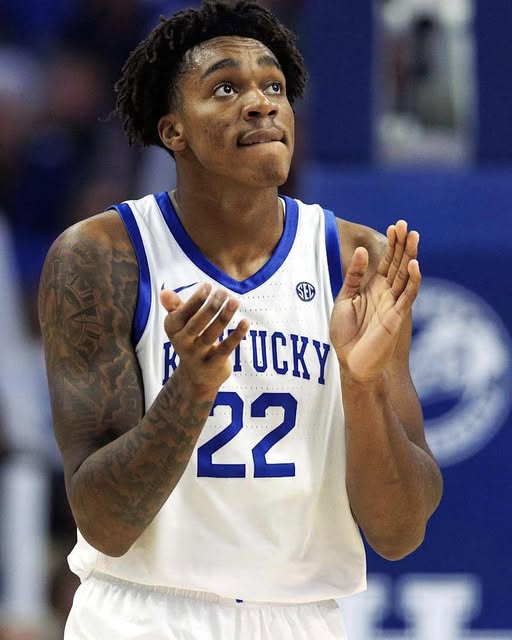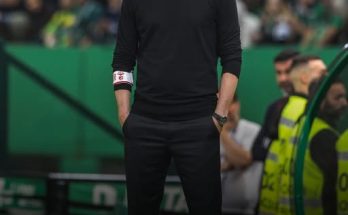In a move that sent shockwaves through the 2025 NBA Draft landscape, the Boston Celtics have acquired Kentucky standout Amari Williams via trade after he was selected 46th overall by the Orlando Magic. The trade, finalized shortly after the Magic made the pick, brings one of college basketball’s most versatile and tenacious frontcourt players to a Celtics team fresh off a Finals appearance and looking to strengthen its rotation for another championship push.
Williams, a 6’10” forward-center known for his relentless motor, defensive versatility, and improving offensive skill set, was a standout at Kentucky despite entering the season somewhat under the radar. Over the course of his collegiate career, Williams blossomed into a highly sought-after prospect—particularly for teams in need of depth and defensive prowess in the paint. His combination of size, athleticism, and leadership made him a player NBA scouts closely monitored throughout the SEC season, and his stock rose consistently leading up to the draft.
Sources indicate that the Celtics had long held interest in Williams, even conducting multiple pre-draft interviews and private workouts. However, they did not hold a second-round pick at the right position to guarantee his selection. As the draft unfolded and Williams began to slide into the mid-40s, Boston’s front office—led by President of Basketball Operations Brad Stevens—sprang into action. The Celtics struck a deal with the Magic to secure Williams’ rights in exchange for a future second-round pick and cash considerations, according to league insiders familiar with the transaction.
This move underscores Boston’s commitment to balancing short-term competitiveness with long-term development. While the Celtics boast a star-laden core led by Jayson Tatum, Jaylen Brown, and the recently re-signed Jrue Holiday, the team has faced challenges with depth—especially in the frontcourt. Injuries to key big men during the regular season and playoffs have exposed the need for reliable rotational players who can protect the rim, switch on defense, and finish around the basket.
Williams fits that mold perfectly. At Kentucky, he earned All-SEC honors for his impact on both ends of the floor, averaging 11.3 points, 8.9 rebounds, 2.4 blocks, and 1.3 steals per game in his final collegiate season. Perhaps even more impressive was his defensive presence—frequently tasked with guarding multiple positions and anchoring Kentucky’s interior defense. He displayed high-level instincts, timing as a shot-blocker, and the ability to hedge and recover on pick-and-roll plays, all qualities that translate well to the NBA.
On offense, while Williams may not have been the most polished scorer in the draft, he showed encouraging signs of growth. His post game, passing ability, and face-up midrange shot improved notably in his junior and senior years. He also ran the floor exceptionally well, making him a transition threat and a reliable target for guards. With the Celtics emphasizing pace and ball movement, his willingness to set hard screens, dive to the rim, and crash the glass adds a new layer of versatility to their bench unit.
What makes this acquisition even more compelling is the Celtics’ track record with developing second-round talent. Players like Payton Pritchard and Sam Hauser, both taken outside the lottery or signed as undrafted free agents, have flourished within Boston’s system. With an elite coaching staff led by Joe Mazzulla and a veteran-laden locker room, Williams steps into an environment where his role is clear and his pathway to impact is realistic.
From Orlando’s perspective, the trade makes strategic sense. The Magic, who have built a promising young core centered around Paolo Banchero, Franz Wagner, and Anthony Black, already possess a crowded frontcourt rotation. With players like Wendell Carter Jr., Jonathan Isaac, and Mo Wagner vying for minutes, Williams may not have had a clear opportunity to crack the rotation early. Moving the pick in exchange for future draft flexibility and financial assets aligns with the Magic’s long-term vision of maintaining cap space and maneuverability while continuing to develop their young stars.
For Williams, the move to Boston could not be more ideal. Speaking to reporters shortly after the trade was announced, he expressed gratitude to the Magic for believing in him and excitement about joining a storied franchise like the Celtics.
“To hear my name called by the Magic was a dream come true,” Williams said. “But then to find out I’m heading to Boston—it’s unreal. I’ve always admired the Celtics’ culture, their fanbase, and the way they play the game. I’m ready to come in, work hard, and contribute however I can.”
That mentality is exactly what the Celtics are counting on. In a league where second-round picks often face an uphill battle to earn minutes, Williams’ tenacity and defensive impact may accelerate his journey. With Boston’s current roster construction, he will have the opportunity to learn behind veterans like Al Horford and Kristaps Porziņģis while competing with younger players for rotation spots.
Analysts around the league have already praised the move as one of the savvier trades of draft night. ESPN’s Jay Bilas called Williams a “steal at 46” and noted that his skill set is “tailor-made for modern NBA schemes, especially on defense.” Others compared his potential impact to that of former Celtics big man Daniel Theis—a high-energy player who made the most of his minutes by playing within his role and maximizing hustle plays.
Celtics fans, too, have embraced the addition with enthusiasm, taking to social media to welcome Williams to Boston and speculate on how he might contribute during the upcoming season. Some even drew parallels to past Celtics teams that relied on gritty, under-the-radar players to elevate their playoff chances—highlighting the franchise’s legacy of turning overlooked talent into valuable contributors.
As the dust settles from the draft, all eyes will now turn to Summer League, where Williams is expected to suit up in Celtics green for the first time. It will offer fans and coaches alike a first look at how his skills translate to the professional game. While Summer League performances are rarely definitive, they often provide a glimpse into a player’s readiness, confidence, and adaptability.
For Williams, it represents the next chapter in a journey defined by hard work and perseverance. After transferring from Drexel to Kentucky in search of bigger challenges and greater visibility, he now finds himself on one of the NBA’s biggest stages. The Celtics, never a franchise to shy away from championship expectations, are betting that his edge, energy, and eagerness to learn will prove invaluable as they continue their quest for Banner 19.
Only time will tell how significant this draft-night trade becomes, but one thing is clear: Boston saw something in Amari Williams that made them move decisively to bring him in. If his college career is any indication, he could quickly become a fan favorite and an important piece of the Celtics’ championship puzzle. In a league defined by stars but built on depth, it’s often the underappreciated additions that make the biggest difference—and Amari Williams may be the latest to fit that mold.



